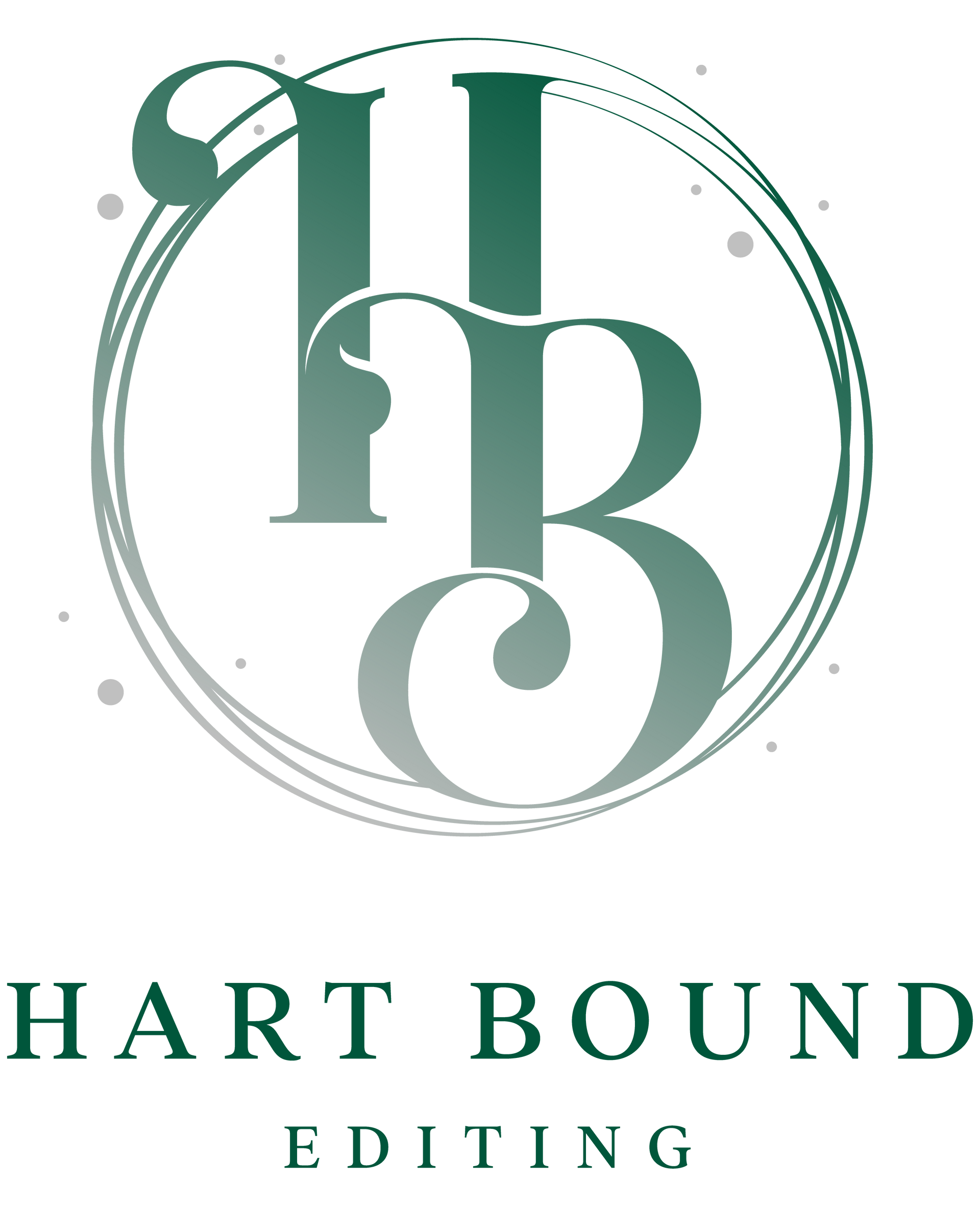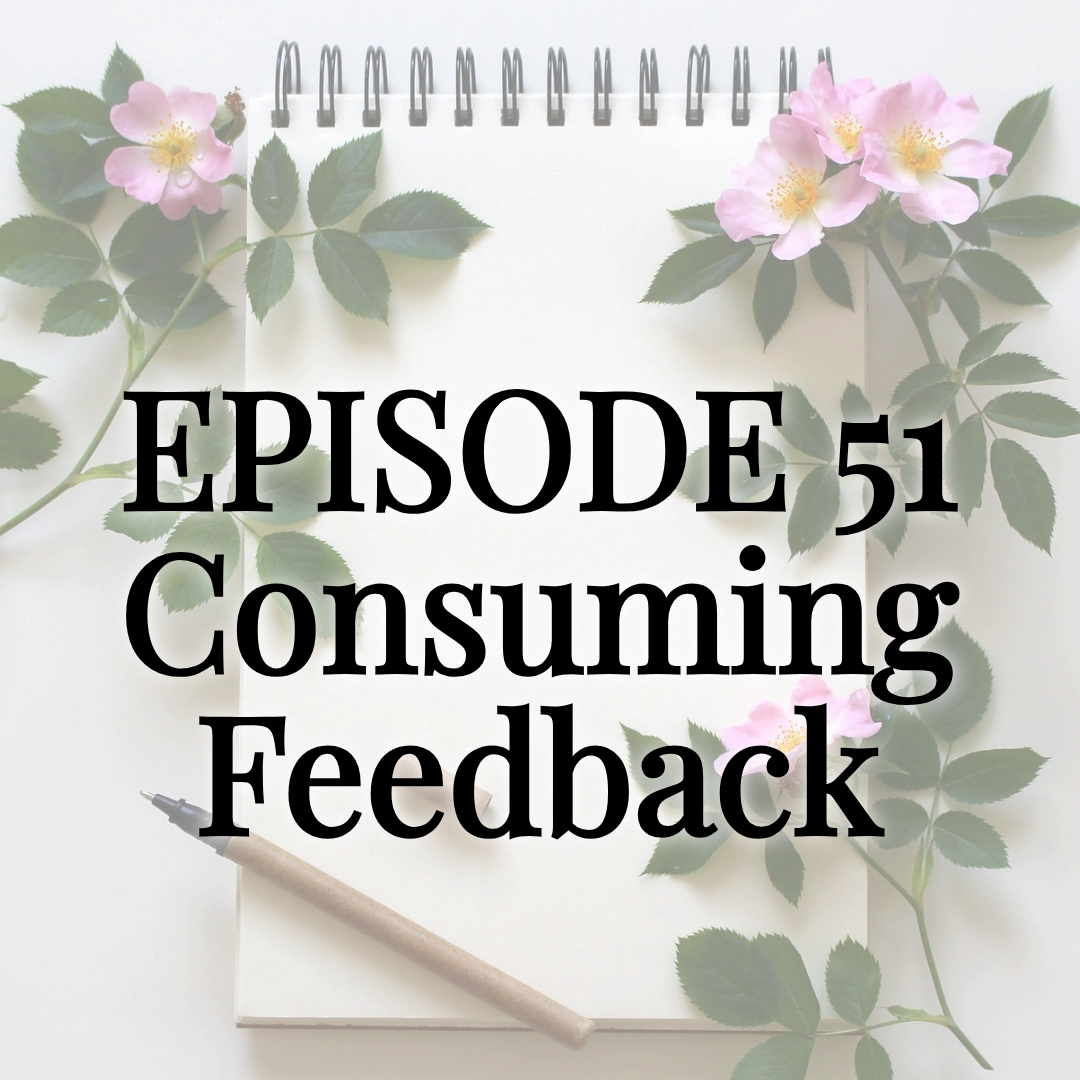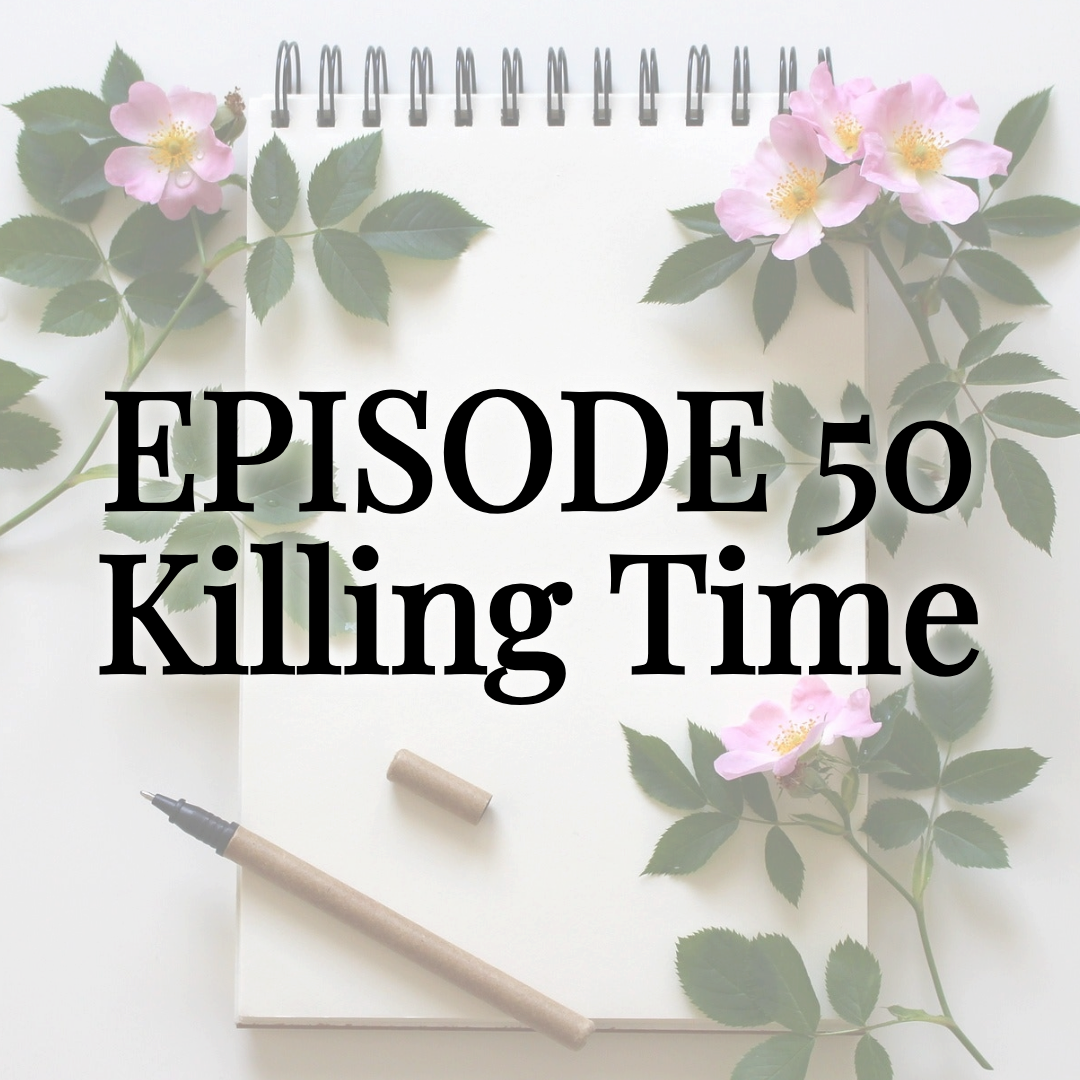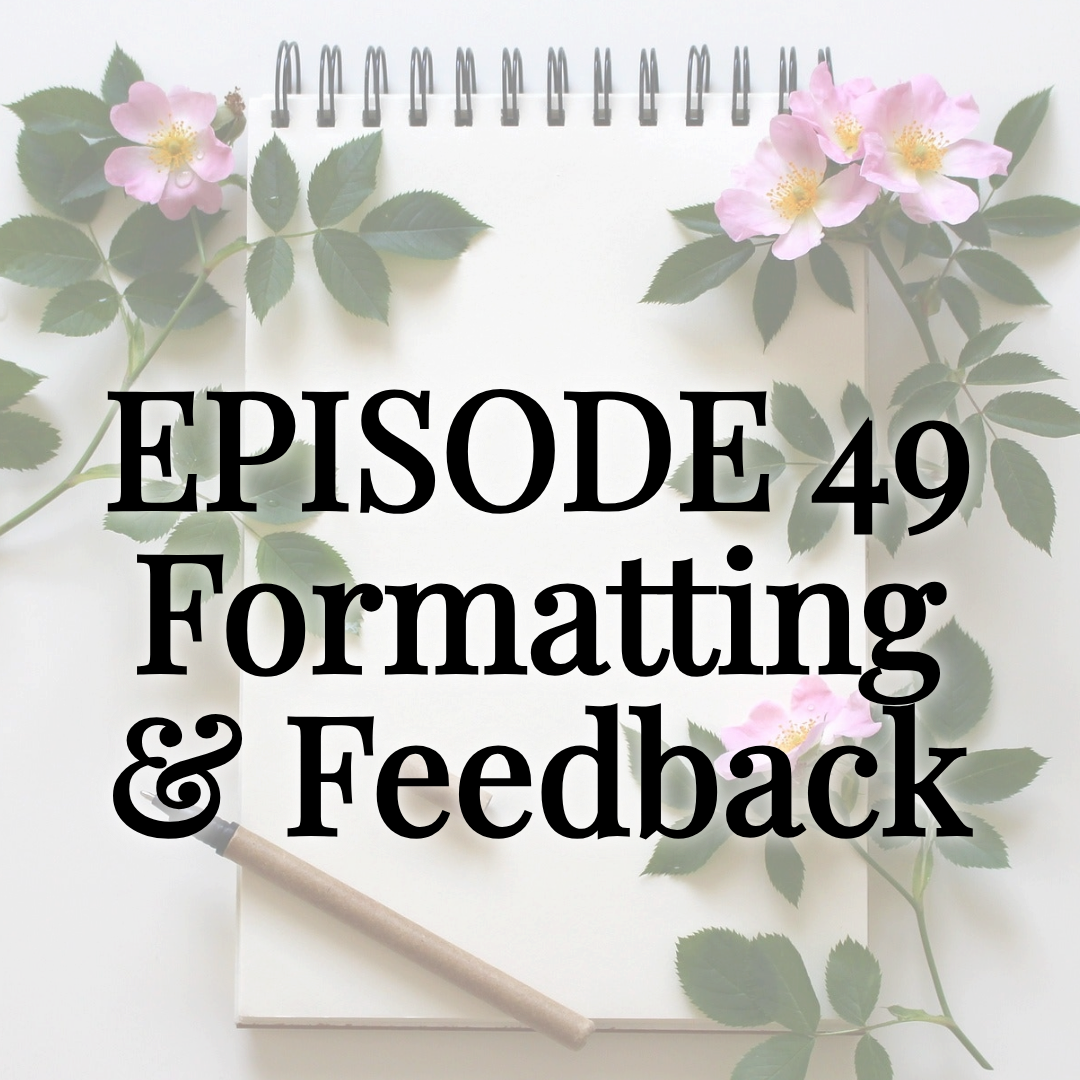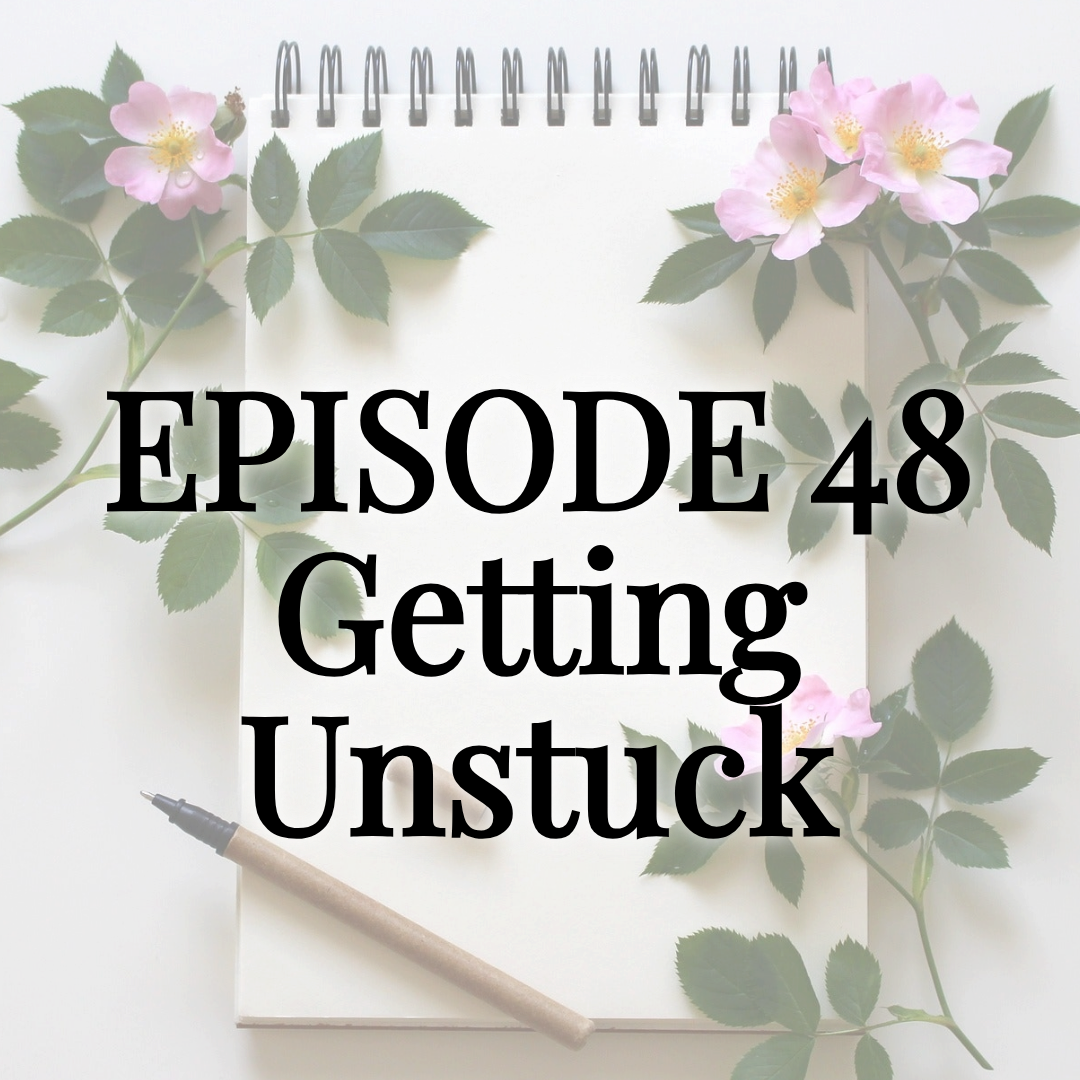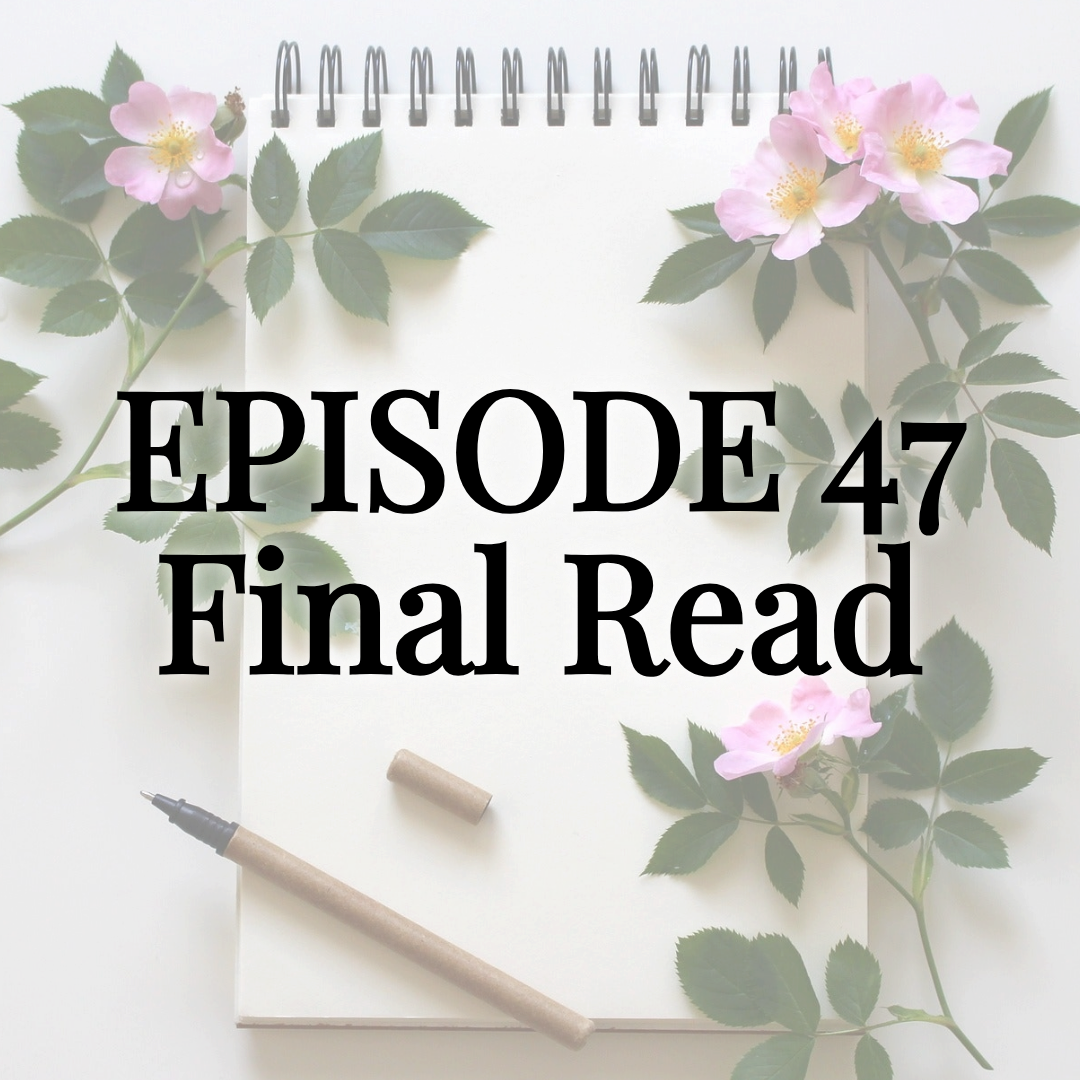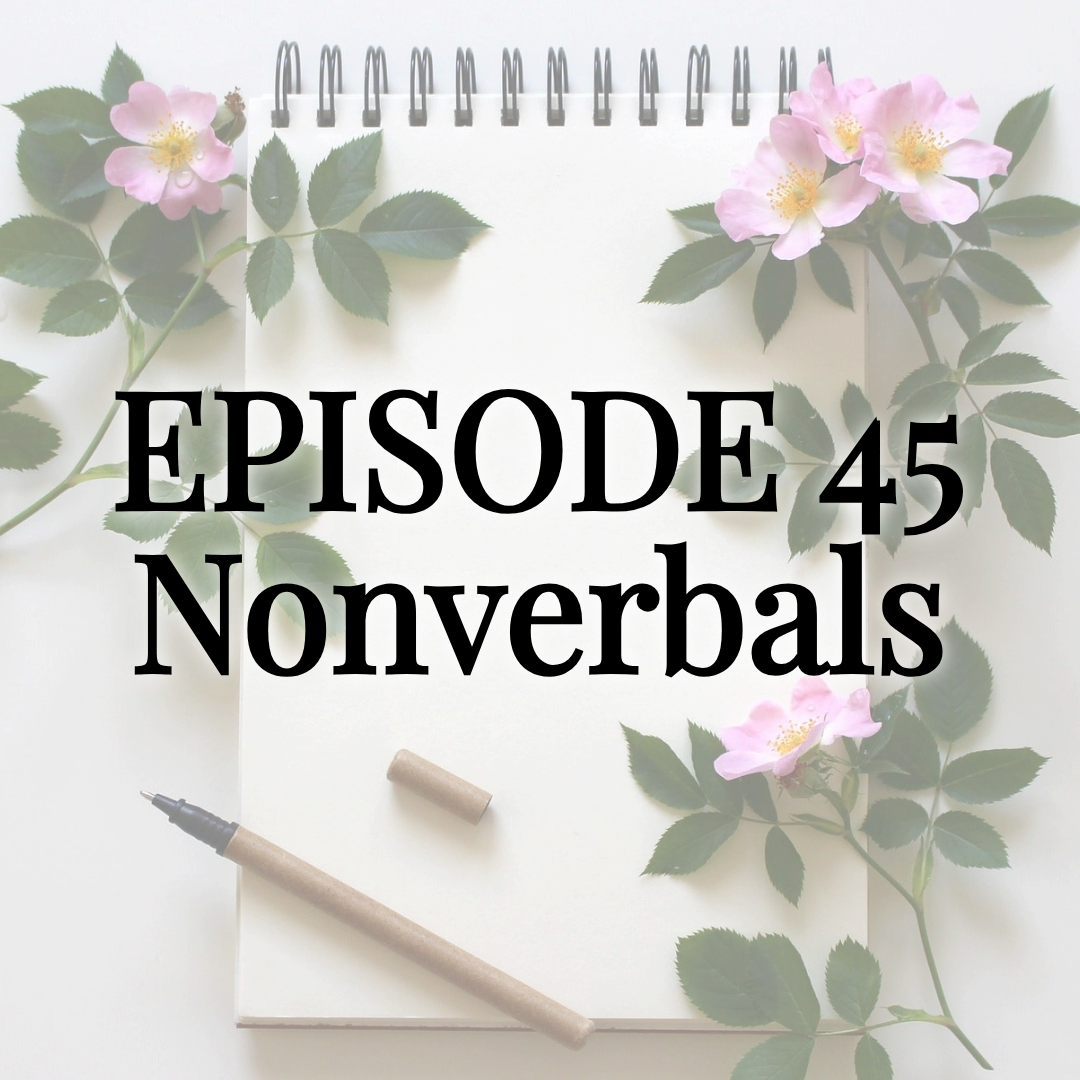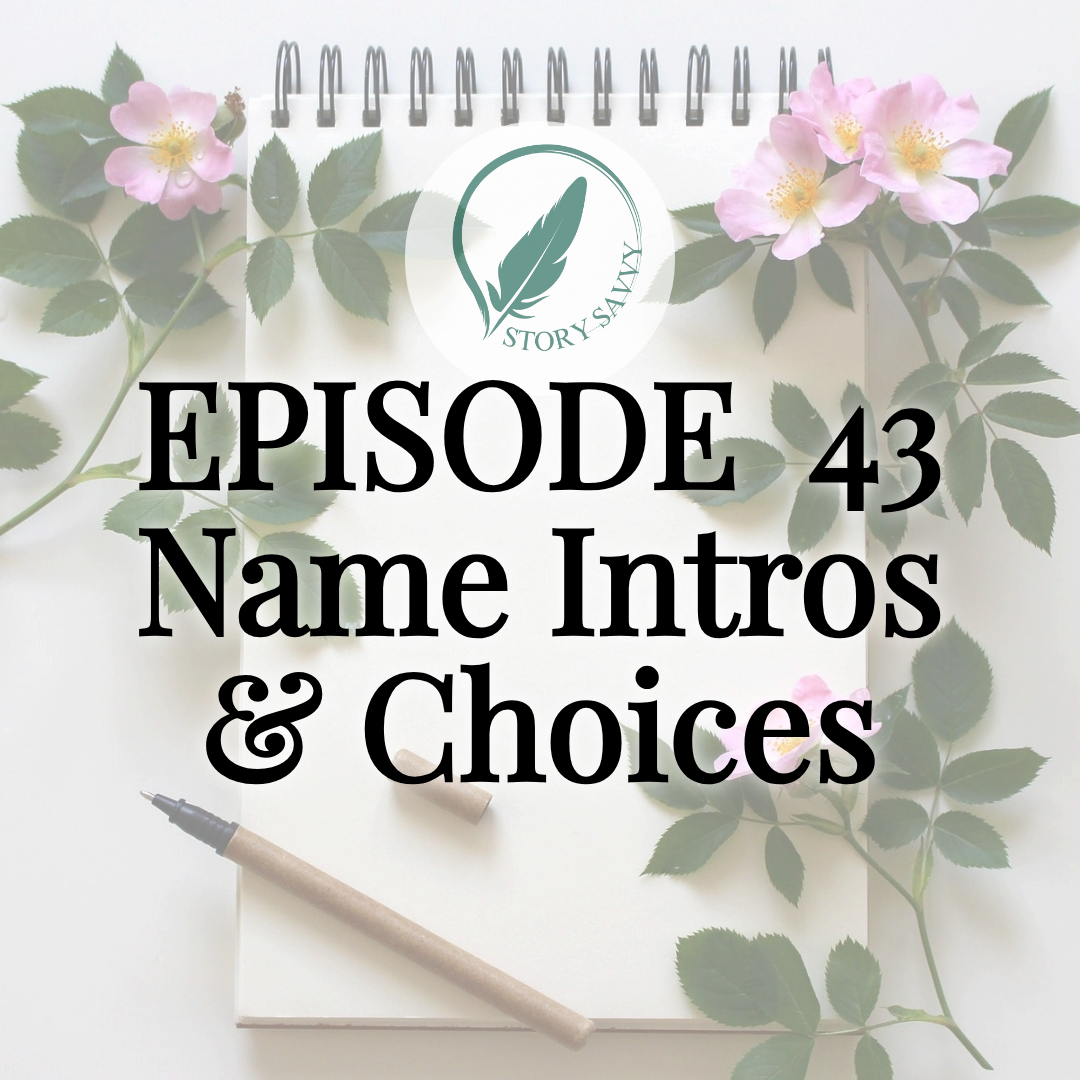Magic Systems and Fantasy: Story Savvy Self-Editing Episode 27
Magic Systems & Fantasy: After-episode thoughts, overview, and transcript...

Later in this episode, when talking about red flags to watch for, I say "If you have magic in your world and your protagonists have access to it and know about it, they should be using it." This of course has the caveat of "Unless you present a good reason for them not to," be that through cost or downsides, secrecy from other people around them, and the like. Just wanted to clarify that.
Happy editing!
Episode 27 Overview:
Magic Systems & Fantasy
"What kind of magic system do I have? Is it working well? What other fantasy-specific considerations do I need to check?"
In this
writing advice podcast, Rebecca offers developmental editing tips on
how to write a magic system, what makes a good writer great, and
how to edit your book yourself.
Agnes Wolfe asks her many questions about
writing a unique magic system and gives advice on
self-editing for authors.
In episode 27 of the Story Savvy Self-Editing series, developmental editor Rebecca Hartwell and aspiring fantasy author Agnes Wolfe explore magic systems—whether they are hard or soft, how to check for plot holes, and what red flags to look for.
Rebecca explains the importance of having your magic system be central to your main plot, while integrating it seamlessly into the storyline. They cover topics such as avoiding common pitfalls, crafting well-thought-out storylines, and preventing inconsistencies when world building with magic. Then they discuss how these can be refined during the self-editing process.
In this episode, you’ll learn:
~ How to ensure the magic system is integral to the story
~ If your magic system is hard or soft
~ How to prevent inconsistencies and plot holes
~ How to track the rules of your magic system
~ The importance of connecting magic systems to your core themes
~ How to address red flags during the self-editing process
Whether you’re trying to catch plot holes or just want to improve your magic system, this episode will help you achieve your goals.
Recommended Resources:
~ Brandon Sanderson’s articles on soft vs. hard magic systems: https://www.brandonsanderson.com/blogs/blog/sandersons-first-law
~ Episode 4: The Core of the Story, Theme and Message.
~ Episode 19: Plot holes and Character Inconsistencies.
~ Episode 20: Deus Ex Machina.
~ Author’s Alcove Membership: authorsalcove.com
~ Fantasy Book Giveaway: AuthorsAlcove.org
See you next week for episode 28: Romance & Love Stories
Episode 27 Transcript:
Magic Systems & Fantasy
Rebecca Hartwell: Hello, and welcome to the Hart Bound Editing Podcast. This is episode 27 of the weekly Story Savvy series, where we tackle the 52 biggest self-editing topics and tips to help you make your good story great, as an aspiring author asks me, a developmental editor, all of the questions that you have wanted to.
We have covered a ton in this series so far, including last week's episode on tying up subplots and the like.
Today, we are going to do a genre-specific episode talking about some fantasy-only considerations. By the end of this episode, you will hopefully feel confident in defining your magic system and tweaking or polishing it as needed, as well as being able to just name some of the core fantasy tropes for marketing your book. Joining me to ask all of the questions is my good friend and co-host Agnes Wolfe. Hello.
Agnes Wolfe: Hi. I'm an aspiring fantasy author who hopes to release her first middle grade fantasy later next year, and also the host and founder of Authors Alcove. I'm here today to tackle the topic of magic systems and fantasy expectations. And as I've mentioned, as I've been mentioning, the summer book giveaway is currently underway. We have this awesome book, Angel of Water and Shadow. I've just started it. It looks really good. I am—well, it is really good from what I've read, but I'm not very far into it. It is new adult.
And then of course, I have to plug Rebecca's book because it is also on the summer book giveaway, A Heart of Flame, and it is phenomenal. Even if you do not go to my book giveaway. So, go to Amazon or wherever and purchase it. It is a good book, and it's a series, so you don't have to say goodbye to Angie—that's the main character—right away anyway. All right.
So, Rebecca, did you realize we are officially more than halfway done with this series?
Rebecca: I had not. Oh my gosh.
Agnes: While we were talking last with the last episode, I was thinking “we are officially halfway, but I never had a chance to say it. So, I had to say it here.
Rebecca: Time flies.
Agnes: So right off the bat, since my primary genre to read is fantasy, this is probably the question I am most passionate about. So, I figure why not start with this one. I, as a reader, not just as a writer, read fantasy because fantasy has magic and I'm in love with magic systems that are so unique to the book and that the magic systems is essentially the book itself. For instance, with one of my favorite series, Fablehaven, the fact that the magic needs to be protected and is otherwise unknown by the outside world is essentially what the book is about and very integral. And then, of course, like in Twilight, if vampires did not live forever and crave drinking blood, there would be no point in the tension between Bella and Edward.
So obviously, to me as a reader, I feel like the single most important thing about a magic system is that our actually needs the magic system. And without the magic system—those words are hard for me. Without the magic system, our story wouldn't be the same. What are some things we need to look at to make sure our magic system is actually a central part of our story? Unless you disagree, and they do not need to be a central part of our story?
Rebecca: I believe you are entirely correct that a good magic system should be more than flavoring, more than a backdrop. Looking at examples that you love for inspiration is a great starting point. And I will toss out a few popular ways to keep that magic system relevant that I often see in fantasy in the hopes that that will help folks who are looking to increase that integration.
Number one is: make the magic secret from the wider world and establish one or more grounded reasons why. And you just gave Fablehaven as an example of that.
Number two would be: make the magic known, but highly illegal or shunned, so that the use of it is always a societal risk.
Number three would be: have the magic come at a high personal cost like energy, so that the tension is with personal sacrifice. Or have the magic come at a high external cost, so that the tension is with resource hoarding or a resource scarcity.
And then number four would be: have the protagonist’s worldview be deeply at odds with the existence of magic as it starts coming into their life. So, the tension then is from that extreme cognitive dissonance and the total reshaping of their lives and their beliefs and their worldview and the discomfort and struggles that come with that.
This is far from an exhaustive list. There are so many other ways that you can do this and combinations of any of these, all of these, can absolutely be used as well.
Agnes: I feel like we could do a whole episode just on those parts alone.
Rebecca: Probably, yeah.
Agnes: So, beyond those points, where should we start when looking at our magic system, especially in our editing process?
Rebecca: All right, so first define for yourself if you have a soft magic system or a hard magic system. You can absolutely Google this and find tons of explanations. My very brief one here is: a soft magic system is one where the magic just sort of is, without any really hard rules or systems or formulas or the like. Nothing is ever really, really tangibly explained. And then on the other side of that, you have a hard magic system where the exact, universally applicable formulas, and spells, and potions, and rules, and sigils are established in detail through the story about exactly how and why magic works and how to use it.
So, defining this difference is important because it gives you a starting point. And deciding that can help you know how much explanation is expected by your readers, or how much whimsy and lack of explanation is going to benefit the story. Brandon Sanderson in particular has some fantastic articles on this that I will link in the show notes for anyone who wants to read up in much more detail on that.
My second piece of advice is: decide what your limitations are. If you really want to try to write a story about omnipotent characters, omniscient characters who can do anything at any time with no real sacrifice to do so, then you can. But I don't recommend it, necessarily. Partly, limitations are a core convention of the fantasy genre. It can also just be hard to make a story like that interesting. Omnipotent characters are harder for readers to relate with because none of us are omnipotent. We all understand struggle and limitations a lot better. You also risk deus ex machina pretty much constantly with an omnipotent character, and it will be hard to get the emotional outpouring or experience or the stakes high at any point. Because if you're omnipotent, you don't have to be invested in these outcomes.
So, I recommend coming up with some limitations, whether that is through the cost, through energy, through what time of day magic works, through what scale power is capable of, a lack of knowledge, or even just arbitrarily establishing something along the lines of, “No, that's not something magic in this world can do, actually.” Sometimes that's what it is. Sometimes that's all it takes.
My third suggestion here is please keep track of what you have decided or established is or isn't possible in your magic system. A lot of the self-editing that I hope folks do from this episode is going to be along the lines of making this statement or list and then going through the book and making sure that there are no deviations that need to be fixed. For example, in my own series I keep a list of the skills that each individual character has, since not everyone can do everything as a rule. And I have a rule for myself within my magic system that all magic, all power, all anything out of reality that happens must come either from auric magic or from demons. And I have a very clear statement for myself limiting what demons can and cannot do.
Fourth in this list is—and this is very, very much related to the last point—never conveniently forget what your magic system's rules are, please. Don't conveniently forget what the costs are or the limitations are. If you find a spot during your self-editing where you did—you know, probably to make it cool or more showy or, on the other side of that, because you needed to make things harder for the protagonist and if they had magic that wouldn't be hard enough—if you establish something and you find a place where you conveniently forgot, be that on either side, then please go in and change how that cool moment happens to better fit within your system, or go back and change how you established your system so that that moment fits.
Fifth and lastly on this list here is: give your readers clear guardrails on the world as well as the magic system, and the magic system as well as the world. Show them exactly what and where the costs and limitations are as early as you can, and ideally by showing those boundaries being bumped into, rather than telling them through an infodump. If you can, try to do this by showing what the reality of the story is, such as the time, so medieval, Renaissance, Victorian, whatever; the place, so rough climate, is it a city, is it country, that kind of stuff; and perhaps even the sociopolitical/economical situation of the protagonist, so are they a prince, are they a pauper, that kind of thing.
And while you are doing that, simultaneously show your magic system being used up to its unique limitations to the outcome of costs that you have decided on. I really wish that I could point you all to the best book I have ever read that does this incredibly well on the first page, but I don't know if the author is ever going to publish it. So, for now I will just say: pick a masterwork in a close subgenre to your own and see how they did it and see if that's any inspiration.
Agnes: So, one of the things that I do is I am a beta reader. I love just reading other people's works, especially before they actually publish. And I also read a lot of self-published books that may have not gone through developmental editors. I'm not sure. So, one of the biggest detractors I have found in books with magic systems specifically is what you know you were referring to as info dumping, where they tell the entire magic system in the first couple of chapters, like you just mentioned. And I think in a way it's intuitive to do that because I know I did that with my first draft, and none of those parts are part of it anymore.
First off, why does this not work?
Rebecca: It doesn't work because telling elements, like details and exposition, are boring, hard to get invested in, and lack momentum. Showing elements, like things happening, being pursued (so chasing a goal), being avoided, being desired, being reacted to through action, being felt and experienced, are all much more interesting, can have riveting momentum, and get readers invested in seeing where things go and how things are going to play out.
This applies to all stories in general, but is definitely something to pay extra attention to in fantasy. As you've mentioned, it also very much applies to magic systems, which we're going to try to keep centered for today (I may or may not deviate, I love this topic) and everything else. Even if you're not writing fantasy, this can still be helpful advice.
My advice is: while coming up with a story concept is often approached from the ground up, where you have one little idea and you slowly build on it and you establish these rules, that's not how you should write it. Don't build your world or magic system from the ground up in your manuscript. Instead, drop the protagonist and the reader in the deep end and immerse them deeply. Open with your protagonist on the run from the magic-hating villagers and on the point of collapsing from using so much of their daily allotment of magic. Or open with your protagonist falling straight up from the top of a mountain and calculating their trajectory to land exactly where they want to on the upside-down world above. Or open with your protagonist, you know, counting their meager coins outside the potion supply shop, feeling intense, deep, meaningful emotions that they can't afford the ingredients to make the magical cure to save their dying parent.
Any option like that, where the magic system is being used and the costs of using it are being felt and an immediate long-term or short-term goal is inherent in the motivation in that moment, and these are all in play, these moments are going to do so much better for your story and your readers than trying to info dump your magic system, your fantasy world, anything else, or trying to build it up one layer at a time.
Agnes: So, if we're not going to info dump, how much and when do we need to explain about our magic system, so we don't bore our reader, but also so that they understand our magic system?
Rebecca: Again, show whenever you can, and I'll repeat my favorite piece of advice on that, which is: explaining something just in time—so in the exact moment where it becomes vitally relevant—is much less likely to feel like info dump than is providing information just in case the reader needs to know it a chapter later, toward the end of the book, whatever the case is, because that's almost always going to come across as info dump.
In short, I suggest shifting your mindset entirely away from the question that you just asked. Away from wondering how to explain your magic system. Instead, think about it as: How can you demonstrate your magic system? Demonstrate over explain, every single time. And to be clear, you should do this as early as possible. But what is “as early as possible” is going to be different depending on the individual book.
For example, the three showing examples that I mentioned a minute ago all assume that the protagonist is an established, experienced—at least to some extent—magic user when the story starts. But if you are instead writing a book where the protagonist is introduced to magic for the first time in the course of the story, then that “earliest possible” chance to demonstrate might be a few chapters in or more. But the first time real magic is told to the protagonist should also ideally be the same moment that magic, real magic, is shown to them, and ideally with emphasis on the latter over the former.
Lastly, on this point, if you feel you still need to do more to help the reader understand your magic system without boring them, use some of these tools or find your own, but these are the ones that I recommend:
First, have the protagonist try something outside the rules. Have them fail because that's outside of the limitations of your magic system, and then have them test to see exactly where those boundaries are through experimentation.
Second suggestion is: have the protagonist ask a more knowledgeable secondary character about a boundary. Ideally with an emotional investment in play in whatever that answer is. And have that answer be as succinct as you can.
Third suggestion, and the last one here, is: have the protagonist wish, however briefly, that something was possible, but they know it isn't within the limitations of your magic system. Just be warned that with this last one, it can come across as foreshadowing or seeding—as we've talked about in previous episodes—for them to eventually discover that they were wrong and that this is a false statement. So just be aware of that with that last suggestion.
Agnes: So, I could seriously talk about magic systems all day. And in fact, one of the things that I most like about magic systems is when they're really well thought out and unique. For instance, some of my favorite books, A Heart of Flame and Unmasking the Curse, they happen to both have very similar magic systems that are—the catalyst is actually trauma, which is something that I just thought was so fascinating. And of course, two of my favorite indie books happen to have that particular theme. So, what do you think makes a well-thought-out magic system that works?
Rebecca: Everything in this episode so far is worth bearing in mind in answering that question, as well as that exact idea you just brought up of uniqueness and innovation. It's been a while since I explained how I recommend achieving those traits as an author in this series, so here's my iterative brainstorming exercise for folks again.
First step: name what it is you are trying to brainstorm and grab a fresh sheet of paper or open a new tab. Get something blank in front of you.
Step two is just stream of consciousness every single idea that pops into your head on this topic, no matter how awful or cringy it is. Just write it down and move on to the next one.
Step three is: if you write down one that you love, one of these ideas, iterations, whatever that you think is better than the rest, highlight it to come back to and keep going.
Step four is: when you have at least 10 ideas or you run out of remotely new ideas (for me, that's usually around 20, that might be different for everyone), stop. Set it aside for just a moment, go get a glass of water, let your brain rest for 60 seconds.
Step five is: come back to your list and read through it. As you're doing that, highlight any favorites again.
Step six is: take those favorites and riff off of them. Try stating that better-than-the-rest idea in 10 different ways with only slightly different wording.
Step seven is: take your favorite (or favorites) from that next level in and sleep on it.
And then apply it.
For magic systems specifically, this exercise might look like, in microcosm: “my magic system is straight out of D&D and I want to make it more unique.” So, then you're going to do the exercise and your first three ideas might be: “mix and match abilities to the classes,” second idea is “rename everything in my own vocabulary,” and third idea is “remove all specific names and shift everything into a softer magic system.” All right, well then you can decide, “okay, well, my favorite is rename everything.” So as I am riffing off of that, I come up with the nested ideas of: rename things the same but with slightly different wording and synonyms. Idea 2 might be: rename everything in a second language that I happen to speak. Idea 3 might be: rename everything in synonyms and then also translate them into Medieval Latin. And that last one might be your favorite. So, you're going to go with that.
Hopefully that illustrates how this exercise might work.
Lastly, on this point, answering your question, I think that finding a way to connect your magic system to your core theme and message, like we talked about all the way back in episode four, I think, can be a big part of it working well for the story. For example, both of the books that you just mentioned have strong core themes of trauma and recovery from it, so integrating that with the magic system bolsters both sides of that connection.
Agnes: So, what is the number one thing that you see authors do when developing a magic system that doesn't actually work?
Rebecca: I'm great at lists, but I'm really bad at picking favorites, so I've got three thoughts here.
Number one is: it's an issue when it creates overpowered problems because it lacks costs or limitations. That's pretty self-explanatory.
Second biggest mistake that I see regularly is: it is too closely a ripoff of some really well-known magic system from a TV show or a video game or a, you know, tabletop game or another book series. Please do try to make it more unique and more yours.
And then third here is: it gets conveniently remembered or forgotten when the author wants to do something showy or make the protagonist suffer without working to make the situation exceed their magical ability to cope or function with it if they were remembering.
Those are the three biggest that I can come up with.
Agnes: So, what are some red flags that let us know if our magic system is flawed or inconsistent?
Rebecca: Number one: you have to mention exceptions. Either to the reader directly or through a character's dialogue to excuse a specific event or specific use of magic.
Second red flag would be: you have to use selective amnesia to make things hard for the plot or characters, which I've touched on twice before.
Red Flag 3 would be: you are struggling to make your antagonist a real threat in the face of how powerful your protagonist is. That one is pretty specific to fantasy from what I've seen.
Red Flag 4 would be: you are inventing abilities on the fly this late in the self-editing process to try to make things make sense or work. Just be aware of that, look at it a little bit more critically and see how else you could approach fixing your magic system.
Red Flag 5 would be: you get feedback from an outside reader that your magic system needs work.
Red Flag 6 would be that your characters don't really use magic much and there isn't a constantly present reason why. If you have magic in your world and your protagonists have access to it and know about it, they should be using it. So, see what you can do with that.
Red Flag 7 would be: your protagonist doesn't learn about magic or receive proof of it being real—if that's needed for them—until the second half of the book. Like you said, I think it was right at the beginning of this episode. Readers read fantasy for magic, so give it to them before they give up and decide to go read something else.
Red Flag 8 would be: if, when you just sit with the question in silence for a full minute, you know (or you have to admit) that you are doing a significant amount of info dump to try to cobble together a magic system that feels grounded and cohesive, when in reality that just needs to be overhauled so that it's more coherent.
And then lastly, on my little list here, Red Flag 9 would be: if the story would play out exactly the same in the grand scheme of things, with no magic, your magic is not integrated and you need to address that.
Agnes: So… Okay, first off, Rebecca's amazing. She literally put the pronunciation for me in this next thing, so do not congratulate me for actually being able to pronounce this. She literally put the pronunciation in my question for me. All right?
I had to tell on myself. So, as we've talked about Deus ex—Ah! I still didn’t get it!—Deus ex machina.
Rebecca: Yes, there you go.
Agnes: I feel like it might be easy to have our magic system make things too easy for our protagonists, like in Deus ex machina?
Rebecca: Good job.
Agnes: Okay, great. Is this the case, and how can we spot it if it happens?
Rebecca: There is a whole episode on that in this series, and I did mention that earlier a little bit. I do have some very specific advice about avoiding this with your protagonist, specifically in regards to magic systems.
First, make them fail at whatever skill you are worried about being deus ex machina at least twice before the climax. If you need them to be able to see the future in the climax, then make them fail to see the future before they get to that point, just to show that there's growth. And this is something that they are attempting. Anyway.
So, the second piece of advice would be: clearly show them only succeeding by the skin of their teeth in that moment. If their powers in the climax are feeling like deus ex machina, make it so that they come this close to dying instead, and that will help significantly with it feeling that way.
Third advice would be: make sure that you establish through the story leading up to the climax that this magic fits within your established and consistent magic system. Show other characters using it, mention it as a possibility. That kind of stuff.
Third and lastly on this topic here—sorry, fourth and lastly on this topic here—is: make sure that the costs are in full effect that they are worried about right before and/or as the protagonist is doing the big magic and that they, those costs, get paid.
If anyone listening has read A Heart of Flame, you'll know that a big part of how I dealt with Angie's big power in the climax was that she really, truly pays for it immediately after. There are big costs to that magic.
Agnes: So, we do need to wrap up. I think probably one of the funnest things to spot—and especially famous works—and I feel like it shows up a lot in middle grade fantasy, especially more than any other magical genre, is that the magic system tends to be the biggest place where plot holes are given. I'm not sure if you have seen that as well.
And I'm specifically thinking of like Harry Potter right off the bat. And there are so many in Harry Potter that I love, like reading the ones, being like, “oh yeah, that one too.” Yeah. As a reader, I think in part because of its age group and second, because the book itself is so immersive, we can forgive some of these. For instance, I adore Harry survived because his mother's love protect him. But how has love never protected anyone else before? And how come the dad's love did not protect the mom? You know, these are questions that even I read the first time and thought, but I was able to forgive.
Since we cannot guarantee our readers will be as forgiving as most Potterheads, how can we make sure our magic system does not give any plot holes?
Rebecca: Like I said in the Plot Holes & Character Inconsistencies episode, aiming for zero plot holes, especially in fantasy, can be a great way to never finish the book. However, aiming to catch as many as you reasonably can is a worthwhile goal.
So, I recommend revisiting episode 19 for this. And honestly, just doing multiple reads of your manuscript in the self-editing process, and making sure that you get outside feedback of some kind from at least two people before publishing, is going to go a long way towards that as well.
Agnes: Well, thank you so much. I really appreciate this one in particular was very exciting, and I'm actually kind of interested about the next one as well. So anyway, thank you very much.
Rebecca: Thank you. And yeah, next week we are going to do the second of our two genre-specific episodes, focusing specifically on love stories and romance specifics for now.
And as always, I would like to thank everyone who follows along with this video series.
We would appreciate it again, as always, if you could help us out by liking and subscribing to the Hart Bound Editing Podcast and the Author's Alcove Podcast, where you can find lots more content for fantasy authors and readers beyond this joint series.
Thank you again.
Agnes: Can't wait to chat next week. Thank you.
Rebecca: Thank you so much for listening to the Hart Bound Editing Podcast. I look forward to bringing you more content to help you make your good story great so it can change lives and change your world. Follow along to hear more or visit my website linked in the description to learn how I can help you and your story to flourish.
See you next time!
